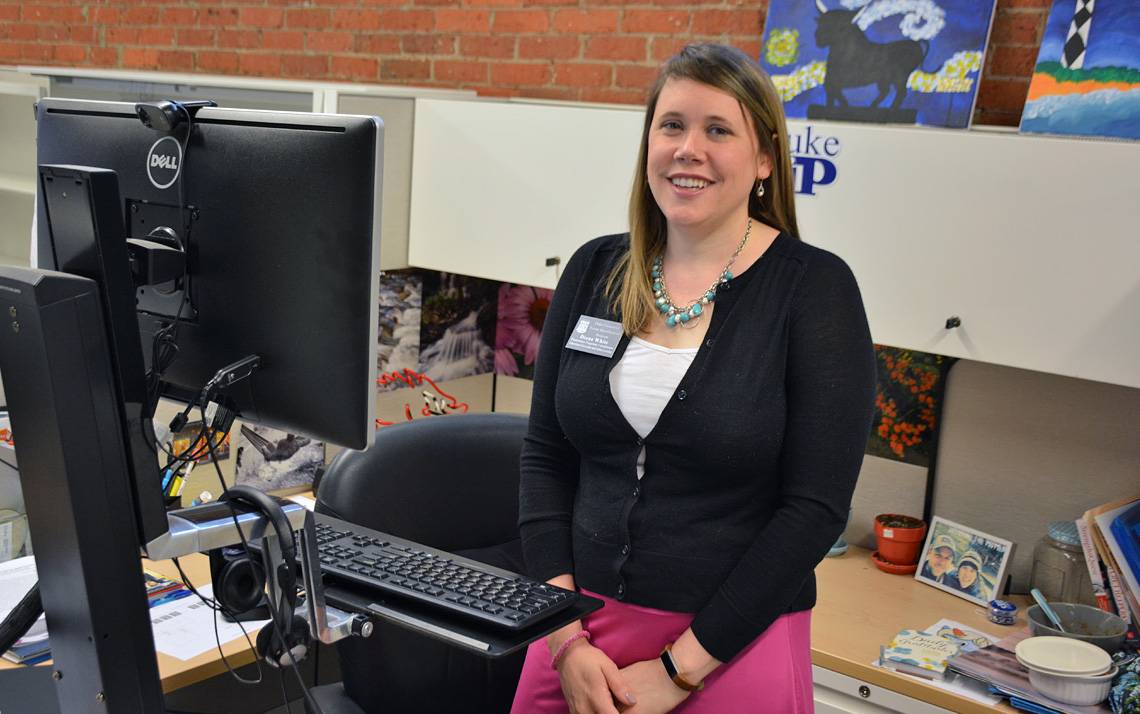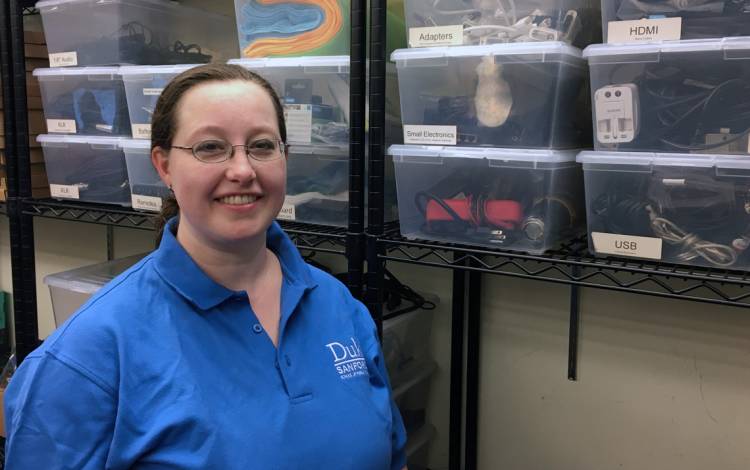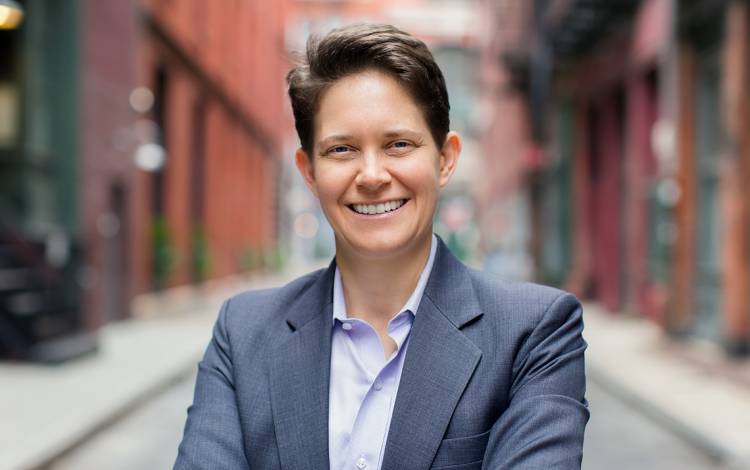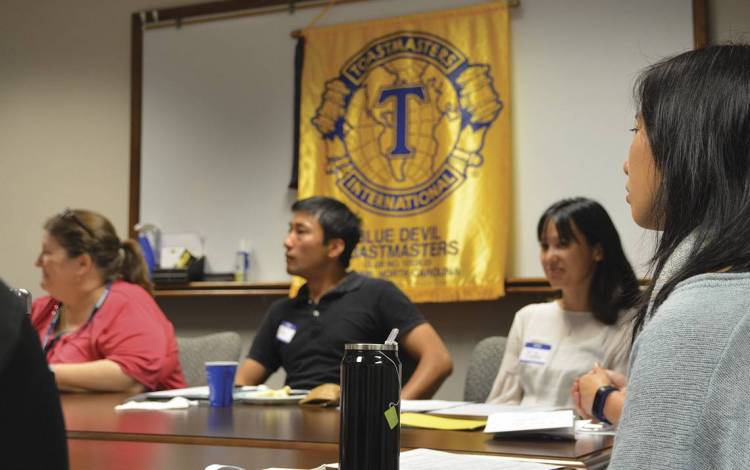5 Ways to Improve Your Soft Skills
Interpersonal skills – such as managing time and positively interacting with others – are important for overall success

When Diana White turns on her computer every morning, she gets a pop-up calendar reminder to set priorities.
She writes a list of tasks to complete by the end of the week, and throughout the week, she updates and reorganizes the list on Trello, a project management website.
Honing how to manage time is a “soft skill” White picked up in Duke’s Learning & Organization Development (L&OD) class “Managing Multiple Priorities.” The class offers instruction on ways you can develop soft skills, which are interpersonal attributes such as time management, communication and empathy.
“Time management gives me a sense of order to my workday,” said White, elementary programs coordinator for the Duke University Talent Identification Program. “I stay more focused when I complete something off my checklist because I know immediately what to work on next.”
Here are tips to improve your interpersonal skills.
Build positive relationships

Emily Totherow was driving to work one morning when she received a call from a colleague. The projector in a Sanford School of Public Policy classroom was not working.
The class was about to begin, so Totherow walked through what could be wrong with the system. Ultimately, the troubleshooting resulted in the problem: The computer connected to the projector was not turned on.
“I work with people who have issues with their equipment in classrooms and offices,” said Totherow, video services specialist for the Sanford School. “It’s important I listen to the problem and treat the situation with respect.”
Totherow approaches every IT request with “H.E.A.T.,” which stands for “hearing, empathizing, apologizing and taking action.” Don Shortslef, L&OD practitioner, teaches that acronym in his course, “Communicating with Diplomacy and Tact.”
“I always remind people that Duke is a service in the medical and educational field,” Shortslef said. “If we’re not happy with our coworkers or communicating with them, that can affect patients and students.”
Focus on teamwork

The Duke Women’s Soccer Team was down 1-0 to the University of Utah and head coach Robbie Church wasn’t the least bit surprised. He said his team was playing selfishly.
As the second half continued, Church noted a transition. Duke started playing selflessly, passing the ball and communicating better on the pitch. The team scored two goals in the final 10 minutes to eke out a win.
“Sometimes someone wants to win something so bad they try to do it too much,” Church said. “You have to remember there is a number of different ways to win. The majority involves being a complete team.”
Church reinforces his team-first philosophy in the locker room. No pictures of individual players adorn the walls.
He says team dynamic is just as important in the office as on the field. Church recommends observing your colleagues and making note of their moods. If they seem anxious, ask how you can help, show empathy.
“I like to compare teamwork to a sail and an anchor,” Church said. “You’re either a sail helping the boat go in the right direction or an anchor unwilling to work with others. By helping your coworkers when they’re in a tough spot it advances the whole team’s mission.”
Learn from successes or setbacks

There’s no better way for Dorie Clark to solve problems than looking to the past and exploring your decision-making process.
When her online “Recognized Expert” course launched in the spring of 2017, she examined the failures and successes of the program.
“It’s important to do a very methodical post-mortem analysis of any decision you made or project you worked on,” said Clark, an adjunct professor at the Fuqua School of Business. “Take a little bit of time to do an analysis of why you made certain decisions.”
By reviewing the launch of her course, Clark realized she needed to change enrollment from specific dates to on an ongoing basis to get more people involved.
“We are so go, go, go, that it sometimes impedes our ability to learn from mistakes,” she said. “You need to give yourself time to process.”
Become a better communicator

Pam Zimmerman set a professional development goal to sharpen her communication and leadership skills by becoming a member of Duke Toastmasters.
During Toastmasters meetings, Zimmerman, a staff assistant for the Duke University Talent Identification Program, helps other members improve their speeches by acting as a “Grammarian,” who listens for filler words like “um,” “ah” and “so.” In return, members help her out, too.
Zimmerman has also taken on a leadership role by serving as Sergeant at Arms for Toastmasters, the position that requires Zimmerman to book conference rooms, welcome guests and perform other administrative duties.
Through Toastmasters, Zimmerman said she has gained more confidence in speaking in front of groups.
“I enjoy attending Toastmasters because the people are encouraging, positive and it is a great learning environment,” she said.
Check out one of Duke’s three Toastmasters clubs to hone communication and leadership skills.